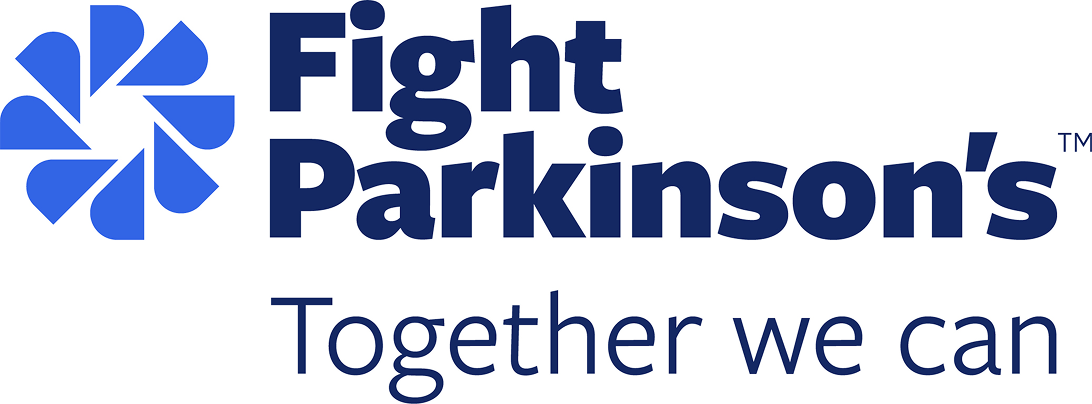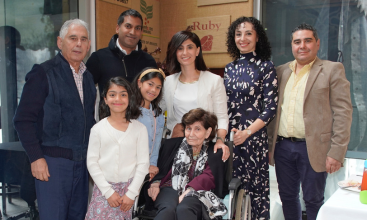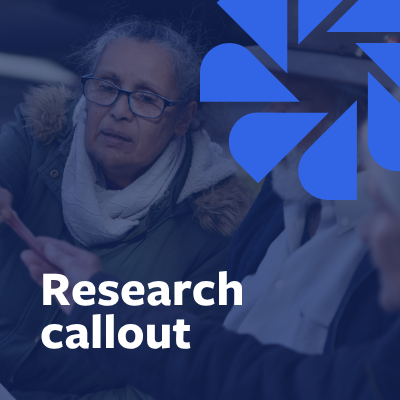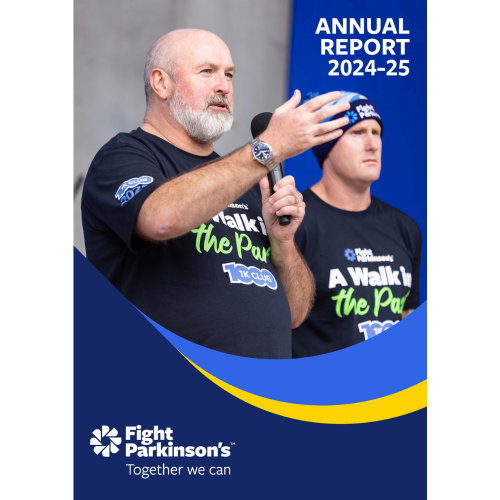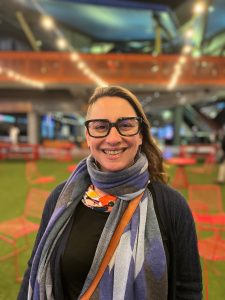 To look at her life from the outside, Abby says there isn’t much that shows she has Parkinson’s, except her eagerness to tell everyone and anyone she meets.
To look at her life from the outside, Abby says there isn’t much that shows she has Parkinson’s, except her eagerness to tell everyone and anyone she meets.
“I am not shy about sharing, if people ask me, I’ll tell them everything,” Abby said.
“When I was diagnosed my neurologist was like, you can take your meds, and nobody will probably notice for a really long time. It’s up to you who you tell and when.
“I said okay and then two days later, I decided I’d tell everyone.”
Though it was a quick decision to share her diagnosis, the path to receiving one was long and at times winding. With easy explanations to the symptoms she was experiencing, it initially did not cross her mind that they could be connected. Time stuck at home through COVID and increasing physical activity felt like the obvious things to pin physical ailments on.
In retrospect, Abby can see they were early warning signs.
“The first thing I noticed – but didn’t pay attention to – was when I played cello, I couldn’t do vibrato, I couldn’t do it anymore,” she said.
“It was post-COVID, so I thought maybe I just needed to practice more, I hadn’t played as much.
“I got a couple of cello lessons, to go back to basics and I was like ‘I don’t know, I just don’t seem to be able to do it’ but I didn’t worry at all.
“Then I was doing a lot of charity walks, training for the coast trek 45k, and my foot started doing weird stuff, but I thought I have been walking a lot of long distances so that makes sense.
“It took a year and a half before I went oh there’s something weird with my left foot and there’s something weird with my left hand.
“It took other people as well, saying it’s been a few months since you did your 45k walk, why are you still limping.”
Encouragement from her family sparks medical intervention
When Abby started to speak with her family about the changes she’d noticed in her body, they were quick to act.
Sharing their concerns with her, they raised that her ailments had been lingering for much longer than would be typical.
Immediately they encouraged her to seek further help.
Assisting her secure an appointment with a neurologist, Abby said there were mixed emotions when the doctor affirmed her concerns.
Mixed emotions in diagnosis
In the moment, Abby said there were two thoughts in her mind when the neurologist indicated they thought something was going on.
There was concern that something was happening to her body she couldn’t control, but also relief that what she was experiencing was real.
“When you’ve got something in your head that there’s something wrong, you start noticing weird things like my foot does this weird twitch when I drive,” she said.
“The neurologist had me walk down the hallway and said, did you know you don’t swing your left arm, and that moment made me go ‘oh, there is something weird’, because I didn’t know that, I wasn’t conscious of that so I couldn’t have made it up.”
Abby recalls the neurologist in this first meeting saying that she could have Parkinson’s but her age would make it surprising.
Referred to a movement disorder specialist, Abby said she understood that she had a neurological movement disorder but putting a name to it was still a big step.
With six months between her appointments, Abby had become comfortable with saying she had a neurological condition, but it didn’t make receiving a formal Parkinson’s diagnosis any easier.
“I’m chatty, a lot of parents at the school would see me limping, and they go ‘what’s happened?’ and I’d say, ‘I’ve got a weird neurological thing going on’ and that was not scary for some reason,” Abby said.
“When I was told it was Parkinson’s it hit me like a brick and I got very emotional.
“My neurologist was excellent; they stayed with me for a really long time.
“I’d come alone as well, I have a very strong memory of walking to the car and holding my body together until I got to the car and then I called a friend.
“It was hard to say Parkinson’s; it took me a couple of days to get the hang of it. In that moment though my friend offered to come with me to the pharmacy because I needed to get medications and I didn’t want to go to the front and have them ask have you taken this medication before. My friend came with me, and she was ready to do everything I needed.”
Continuing a positive life
Two years on from diagnosis, Abby continues to confront her diagnosis head on.
With the right medications and healthcare team, she hasn’t stopped doing the things she loves.
She said Parkinson’s is always with her, but she won’t let it hold her back.
“Taking my medication is a prompt every few hours to think about it, so it is constantly there, and I think that’s how it impacts me,” she said.
“I always feel a bit of pressure like, oh, I should be exercising, I should be doing this or that, and everyone’s telling you what you should be doing, and I’m like, yes but I also have two children to raise, and I have my own business so I’m busy with that.
“I do my best, but that’s how it’s impacted me, I’m constantly thinking about what I should be doing.”
In her day-to-day life, small changes help Abby continue her hobbies, while long-term planning has also entered her mind.
Looking at house renovations, she is more considerate to what mobility needs she may have in the future. It’s a big unknown to prepare for, but she said smart decisions now could help prevent a retrofit later.
Continuing her cello practice has also been important, and her community orchestra has been more than willing to help her continue to play.
Returning to group was emotional as she realised the positive impact her new medications were having on her ability to play. The support from her community to make adaptations to keep her playing was also overwhelming.
Abby knows she has a long journey ahead of her, but she is hopeful that by taking Parkinson’s in her stride, she can continue doing the things she loves.
